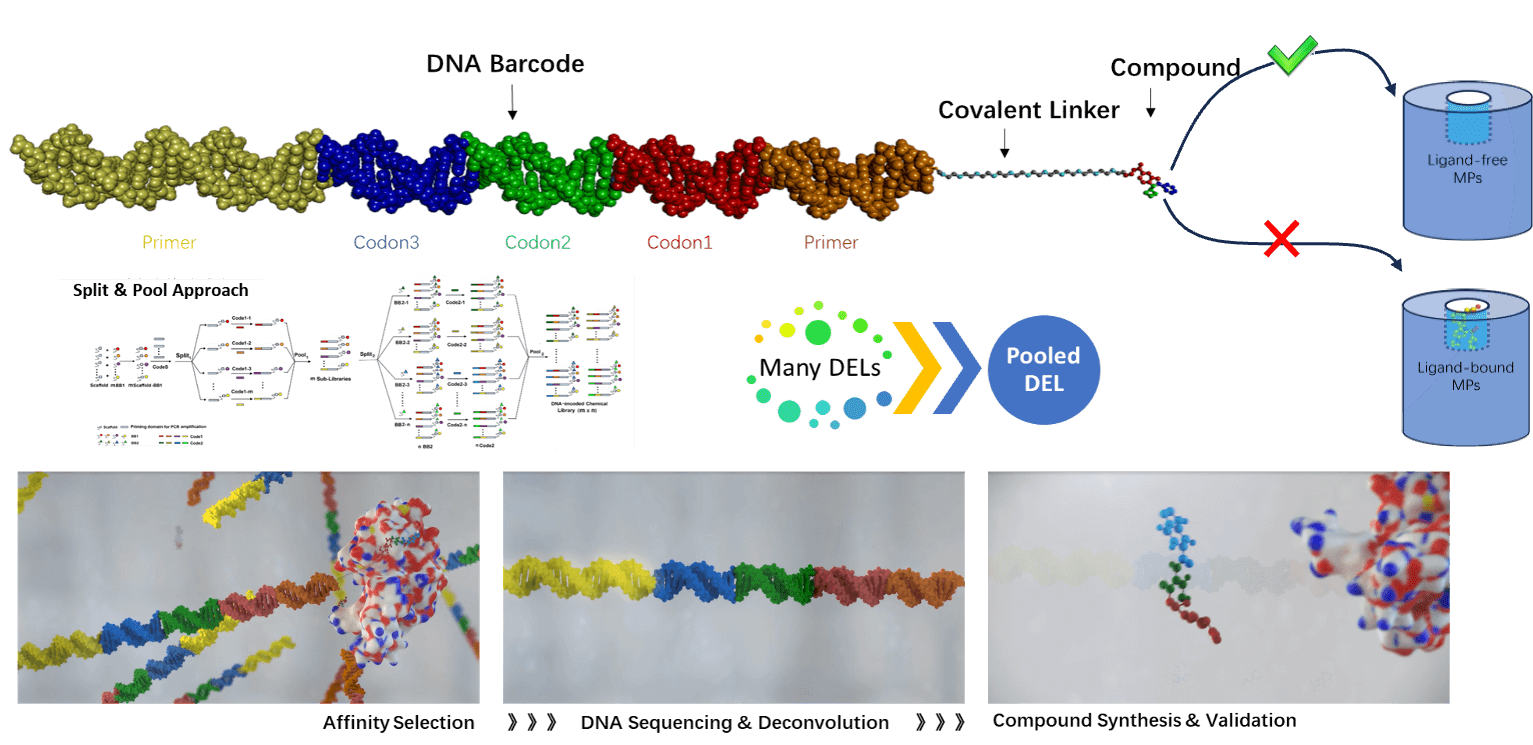Discovery of Small-molecule Compound & Peptide
Using traditional cell-based "one-well-one-compound" functional assays to select membrane protein small molecule/peptide ligands has several drawbacks: it is labor-intensive and challenging to interpret, as the goal of such assays is to identify modulators of the response rather than to detect whether the response is on or off. These assays are also susceptible to artifacts and have relatively limited compound throughput, typically ranging from 10^3 to 10^6 compounds. In contrast, interaction- or affinity-based methods, which utilize large encoded libraries of potential binders to screen against target proteins, circumvent these limitations. Techniques such as DNA-encoded library (DEL) screening and mRNA display exemplify this approach.
Screening DNA-encoded compound libraries offers significant advantages in several aspects: 1. Greater diversity of compound libraries; 2. Lower synthesis and screening costs per individual compound; 3. The ability to screen multiple targets simultaneously, providing preliminary information on mechanisms of action (MOA); 4. Abundant structure-activity relationship (SAR) information. The numerous advantages of DEL have led an increasing number of scientists in both academia and industry to adopt DEL as a tool for lead compound discovery. In fact, nearly all major pharmaceutical companies are utilizing DEL for their drug development projects.
Unfortunately, however, the preparation of stable, ligand-free, biologically active membrane proteins remains another significant challenge in the industry. This has left many innovative pharmaceutical companies with vast DEL/peptide libraries but unable to screen for membrane protein hits, particularly GPCRs.
Unlike typical biotechnology firms, Alphelix can readily obtain stable, ligand-free, biologically active membrane proteins, especially GPCRs. Therefore, we have partnered with industry-leading DEL development company HitGen and other partners with extensive peptide libraries to provide global innovative pharmaceutical companies with targeted screening services for small molecule/peptide lead compounds against membrane proteins.
Services and Duration
| Item | Service Details | Time(weeks) |
| Discovery of Small-molecule Compound & Peptide | Protein preparation and activity validation | 3-4 |
| DEL/ Peptide libraries screening | 4-8 | |
| Hit validation | 4-8 |
Screening process

DEL screening requires ligand-free proteins

